I woke up early the day Tomaž Šalamun died. It was just a few days ago. It was a week now, a month ago. I was in the desert. I write poems because I’m a cactus, Tomaž wrote, or that his how a line from his poem “Grass” was translated. I couldn’t sleep. I hadn’t been sleeping well. I haven’t been sleeping well. My dreams are constantly being interrupted. So I’ve been having a lot of them. Or, waking constantly, I’ve been remembering. I dreamed thousands of people were moving like a river down an unlit bridge into a forest of thin trees bearing enormous red fruit. I dreamed of a European fountain in a Japanese village. I dreamed Phil and I were taking a new drug made of anthills (anthills in pill form). I dreamed Farid started making complex musical instruments out of wood. I dreamed Caitie and I were crossing a pedestrian bridge above a city of gleaming white buildings and canals of clouded yellow-gray water. I dreamed I was urinating in a locker room. I dreamed two leafcutter ants were locked in battle; one picked up the other and threw it into the distance. I dreamed I smashed a bottle of iced tea across the face of a man in a gas station after he asked what I thought the worst thing was about 9/11 (that and Everything that happened after were my answers). I dreamed a group of young women wearing brightly colored balaclavas and wife-beaters were integrating flash mob dancing into quasi-violent anti-police protests. I dreamed a group of young Asian American women wearing paper mâché mushrooms on their heads were visiting me at the beach. I dreamed of pushing a shopping cart down a road in the rain. I dreamed votive candles flickering on the seat of a wheelchair. I dreamed of burning down a bookstore. When I got up, there was a small, rectangular banner of frayed light on the white wall. Tomaž was dead.


I knew he was going to die. I knew his lung cancer had spread to his brain, and that he was at home in Slovenia with his wife, Metka. I read a rough translation of his obituary in Delo, out of Ljubljana, which quoted his poem “Duma,” which begins, in his translation with Christopher Merrill:
Fucked by the Absolute
fed up with virgins and other dying sufferers
I love you o neighbors, meek fantasies of God the Father
I love you o integral characters of sweet gazing
in my mind grace yielded
I wrote to Tomaž on November 23, the day I learned he was going to die: Writing to you on a Sunday morning in the desert. The desert is quiet, but for halos of birds. Waking up and thinking of you, Tomaž, the very present sensation of your face and your voice, thinking, I’m not stomped into the desert, / I’m lying here on the sand because I love it. Maybe writing to you is like wishing myself to become something like an insect, a praying mantis, crossing the threshold into your room … Dot Devota and Joshua Marie Wilkinson and I spent the next month talking about and reading and rereading Tomaž’s poems to each other at night by flashlight and fire. We opened randomly from stacks of books to what always turned out to be the right poem. It gave the seemingly self-generating body of Tomaž’s poetry, along with the fact of being translated and appearing out of chronological order, a totally corpse-divination kind of omnidirectionality. The exhilaration, the stimulation, coupled with the VOLTAIC SADNESS I felt the first time I read a poem by Tomaž, came back. THE FIRST TIME: It was the epigraphic poem in Tomaž and Joshua Beckman’s translation of Tomaž’s first book, Poker (Ugly Duckling Presse, 2003):
The light is plucked
the stone is crushed
the river begins to run through the shadow
alien suns ignite a lightness
and no one knows how you came to be there
but wherever you are
in whatever you’ve been tied
you know only this
you must
My friend Phil Cordelli—with whom I ate anthill drugs—gave me Poker. He was an intern then an editor for many years at Ugly Duckling. I loved everything about that book, Phil said after Tomaž died, and I reminded him he introduced me to Tomaž via Poker. It sparked so much for me … the tactile sexual excitement I felt running my fingers over it; the poems had so much mystery to me, I was just overloaded. OVERLOADED: The sensation was, and is, for me, of running or being compelled or swept or blown down a wooded slope within a crowd of spirited yet anonymous people with whom I feel immediate trust so quickly and recklessly and yes OVERLOADED my feet lift off like a peasant-transitioning Icarus or the naked torch-bearing gypsies running through the trees down to the Klyazma River in Andrei Rublev. The first voice is oracular and omniscient, yet with a warmth and light deviousness emanating from the crushed stone and river through the shadow about the alien suns that form the smoke through which the second voice, that of the proto-auto-biographer, steps forth, forging a life in-and-out of time with itself, and the context of an Eastern Europe I know mostly through poetry:
I got tired of the image of my tribe
and moved out.
—which began/begins the poem “Eclipse,” the exilic light condition in which I lose my body lifting off into the troposphere. It is new and momentary but the moment of surpassing is also a moment of total alignment creating an echo that goes on I think forever. Then my GRANDFATHER steps through the smoke, which I realize is actually the grindings of skin and bone and carcasses kicking up from where they were being sloughed off, in the fourth section of “Eclipse,” beginning:
Pi pi pi my little dove
come close, come
—because it reminds me of a song about a pigeon that my grandfather used to sing to my sister and me at night when we were very young:
hato poppo
hato poppo
sora yaruzo
はとぽっぽ/pigeon coo coo
はとぽっぽ/pigeon coo coo
そらやるぞ/come down
Was I a pigeon as a child? Was I a pigeon-child? Was my grandfather singing my sister and me into (and out of) his stomach? Was he calling us out of our crust? I felt at home beneath the alien suns and the moving out and burning and the alternating sharpness and softness, cruelty and kindness. GRANDPARENTS: All poets I admire to whom I am indebted of a certain age I think of as my grandparents, maybe conflations of my grandfather and grandmother. Actually, age does not matter. Or maybe the most befitting is the youngest, the best model for young and old age alike. There are no parents in my poetry life, only grandparents. It’s the difference between someone’s hand on the back of my neck, and magic. And yet, I don’t believe in unconditional love. I don’t believe in unconditional trust. That’s when I find myself being unduly penetrated, my wings melting not by the sun but the earth. Wings are a terrible virtue of poem. If I am going to live in poetry, then I need something more permeable and mercurial and empowering than unconditional trust or love, the vestments of false living, but what? Grandparent love is too easy. My grandparents loved me before I was born, which I don’t trust. I often feel that way about poems that are full of a foregone love manifest as coolly euphoric theatrics, when they are more truthfully mute, recalcitrant, inattentive, indifferent, and sociopathic, i.e. poems into which I so easily slip to find myself overwhelmed by emotions that are not mine, to which I cannot actually relate, but am made to believe. I am instantaneously inspired to write. That is my problem. Who says they write for the dead? Who truly writes for the dead? I write for the unborn, a poet might say, while simultaneously hating the baby. I am bound from birth—that is why I cry out, because the space I am given is not mine. The poem I am inspired to write belongs to the inspiration I trust, not the poem. The poem is a BASTARD. Before Tomaž is a sphere rushing through the air, he is a monster, and if he is a monster, we are monsters, as I write this I feel, yes: I am repeatedly embedding myself by some kind of relentless discomfort gulping for joy in all my beloved poets’ nipples. Who has not asked himself at some time or other: am I a monster or is this what it means to be a person? (Clarice Lispector, The Hour of the Star)

Sitting in the desert with DD and JMW, the flashlight and fire blowing shadows through Tomaž’s subversive lullabies, I remembered, and felt, what I felt the first time: Tomaž Šalamun must be dead. We were reading his poems to each other not as a stay against time, or death, but as an appreciation, a vigil, but what does that mean? It is often all we have. I love Tomaž’s poems partly because I can hear his voice. To read him is to summon his warm and jubilant and measured and solemn sometimes ecclesiastic animated yet melancholy with the burden of insight’s waiting for the inventory of creation to catch up to it, compressed earth cracking a silvering lulling and loving voice that makes the poems so absolutely present. Some grandparent examples are complete. Some grandparent examples are incomplete or have failed. I loved Tomaž’s poems immediately. I love them immediately still. And I believe the inspiration they release is STILL HIS—that what I partly experience as the igniting of my mind is the unwitting siphoning of the energy overflowing his. Even now, even here, I am writing too much, and maybe not even what I was meaning to. Because I am mad that I am so quick to love. And I am sad. I am sad because Tomaž was one of the few living poets I genuinely revered as a model, saint, grandparent-figure, who was a man. Because: most of the living poets who mean the most to me in the same way are WOMEN—Etel Adnan, Wong May, Hiromi Ito, Alice Notley, Bernadette Mayer, Bhanu Kapil, Don Mee Choi, Mary Ruefle, Karena Youtz, to name only a few who are at least one generation older than me. I’ve struggled to enumerate a comparable list of MEN, and have failed. The men who mean the most to me in the same way are DEAD, though the DEAD who mean the most to me are women. Why? How about: living men are, beyond a certain age, purely excessive, superfluous. Where they don’t become static and convert their stasis into complacency, especially as their work continues to be METED OUT, they decline. Maybe these are particularly and curiously contemporary Anglo-American circumstances. Women, meanwhile, are in CONSTANT LABOR—constant labor entailing continual evolution and change through the potential for a more genuine organic biological relationship with the source of creativity. And yet, it’s labor I witnessed in Tomaž Šalamun. Could this be true? Am I alone? It is neither merely nor nearly an aesthetic preference, but a being cared for by the unfolding process of another, which I simply do not feel for the most part with men. And yet I feel it with Tomaž. This is the beginning of a thought I’m going to have to put down elsewhere. For now, I am waiting. Tomaž went to the store to buy some milk, but he hasn’t drunken the milk yet.
alien suns ignite a lightness
The poet comes (back) to life when their poetry is being read. Does that mean the poet is dead when their poetry is not being read? Does the poet come (back) to life when they are writing poetry? Or is the poet dead when they are writing poetry? In order for their poetry to be read, a poet must (first) die. A way of (first) dying is for the poet’s poetry to be read. Is another way of (first) dying for the poet to write poetry? When a poet is being read, they pass (away) into their poetry. Does the poet pass (away) into their poetry each time their poetry is being read? Can a poet pass (away) into their poetry by writing poetry? A poet and their poetry should not coexist. A poet and their poetry cannot coexist. Not even when writing poetry? The more present poetry feels, the more likely the poet is dead, because the poet’s death makes the poetry’s present eternal. A person, meanwhile, comes (back) to life when reading poetry. In order to read poetry, a person must (first) die. A way of (first) dying is for a person to read poetry. A person can only coexist with poetry when the poet is dead. When a poet passes (away) into their poetry, that person comes (back) to life in the form of poetry’s eternal present. I cannot remember what I do not write down. I pass (away) into what I write down. I cannot write anything down if I have passed away (am dead). I come (back) to life through what I’ve written down. Dreams are idealized death: (your) life being lived without you being actually there, (your) life going on without you. The whole of remembered existence in an eclipse.
Why did I tell you my dreams? Because it was in a dream that I last saw Tomaž Šalamun. I wrote about it once before. I had the dream in late-September 2012. Let me tell it again:
Tomaž and I were at a semi-formal after-party for some nondescript event. We were on the parquet dance floor. Colored lights were moving languidly across the ceiling, walls, and semi-conscious people. Tomaž was teaching me how to slow dance. He showed me the moves, I kept fucking up, but he was very patient. The last dance he showed me was one in which you could not move a single part of your body except for your eyes. The easiest and most difficult dance! Tomaž showed me, but I kept moving parts of my body. The dream ended with Tomaž performing the slow dance in the middle of the dance floor surrounded by the languid lights and semi-conscious people. Only his eyes were moving.
Though it was a dream, it was the most intimate we’d been. We spent time together in Missoula—he read “Robi” in a black box theater; my friend, the poet Rob Schlegel, called it a revelation. I don’t know where he took us but it felt like everyone was walking behind him, not trying to keep up as much as simply trying to feel the human world as he was feeling it. Most of me still leaves my body when I read that poem—and Seattle, and we wrote letters and sent each other books, but it was the dream of Tomaž’s slow-dancing eyes that made me feel especially close to him. The dynamic: I am watching him watching me, trying to see as perceptively, as cruelly and as kind as he’s able. He remembers everything, like he beats memory to it. I told Tomaž about the dream (Sunday morning, quiet, bird-halos, stomped into the desert, sand-love, praying mantis, November 23). He responded three days later, via dictation to Metka:
My eyes are full of glaucoma so I see that you wanted to rejuvenate and resurrect them.
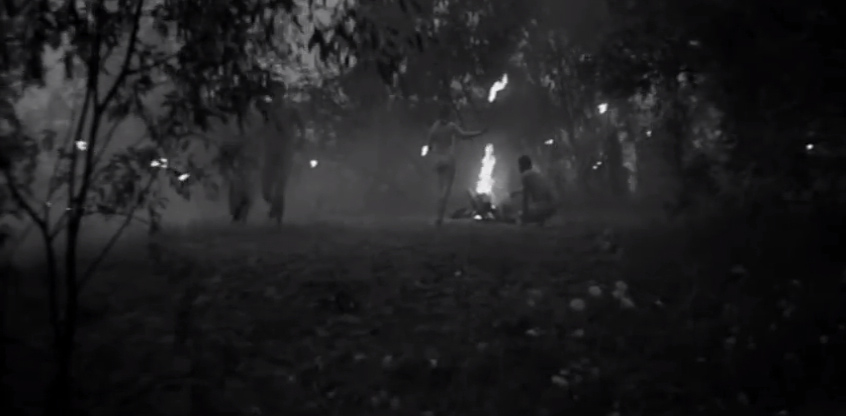
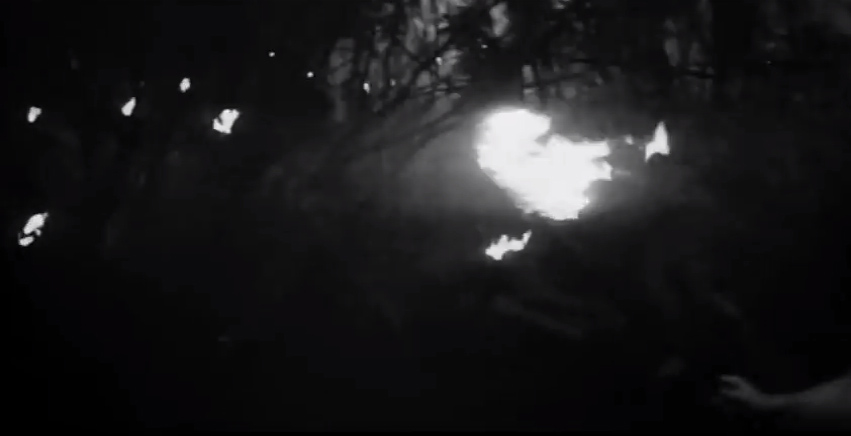
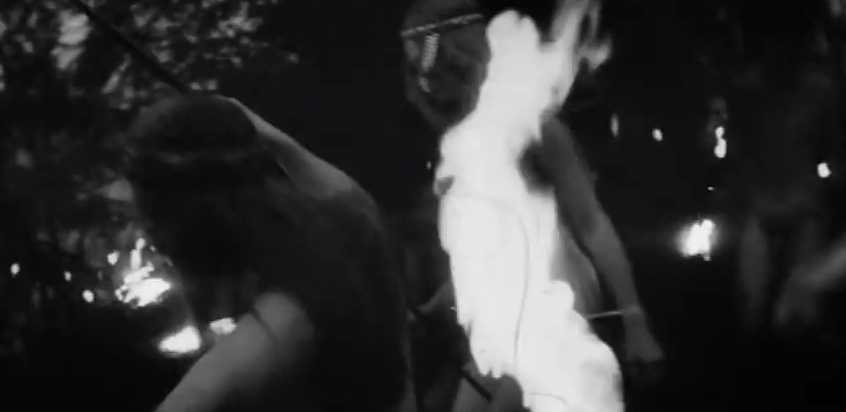
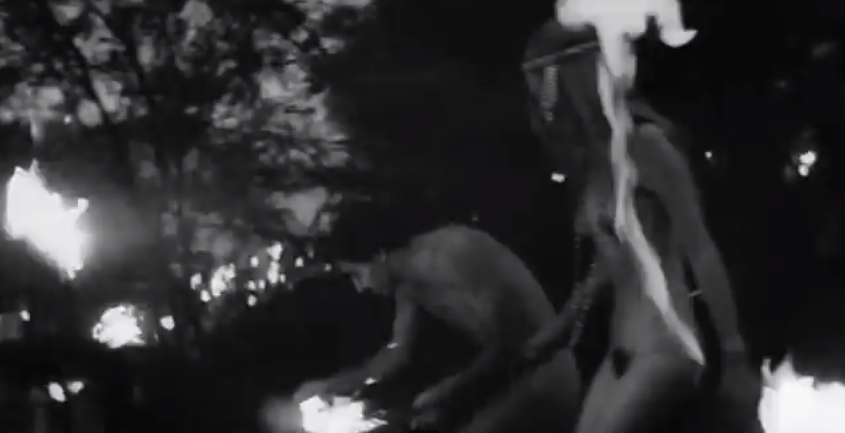
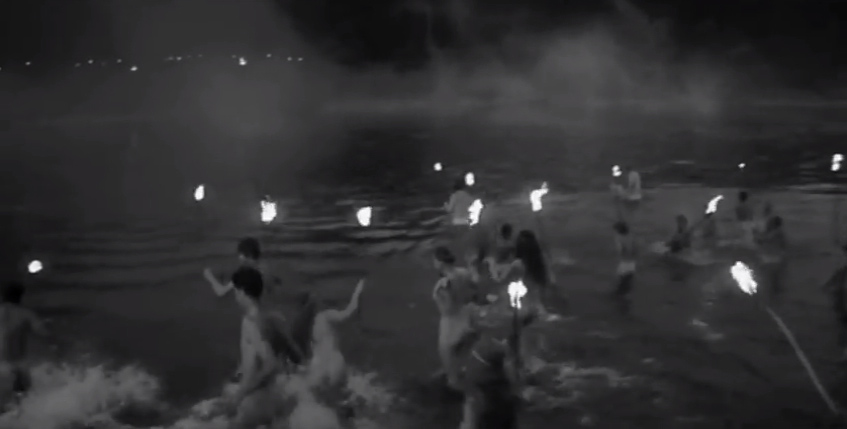
Dearest Tomaž
Hello to Metka ...
Your eyes are dancing in the desert. We have been thinking and talking about you here, including last night; there was a full moon and an enormous ring around the moon. We made a fire and read The Book for My Brother and Poker to each other. It was worth saying that directly to the fire, as the wood broke down, and I threw a book of mine into the flames: The Girl Without Arms [a book to which Tomaž contributed]. You wrote, and Joshua B translated,
then I’m an arm
I’m pale and I sing I sing loud
Are you able to read and/or listen to music and/or visit with friends? Are friends visiting you?
Are you near a window?
Are you warm?
Please don’t feel you have to respond, because you’re already responding, I’m taking everything you’ve given to me, so generously, over time, and in your writing, and unfolding it all into an ongoing response. Know that you’re loved in the desert ...
Now I turn to Little Mushrooms.
Brandon
Dear Brandon and Josh (dictated to Metka),
I love the desert and fires in the desert and I’m happy that my eyes were present there.
Please don’t come to visit me, you may be too late.
My love to all of you,
Tomaž